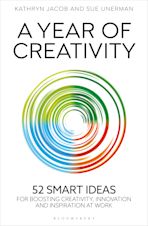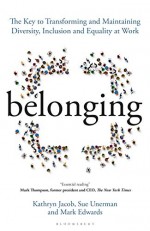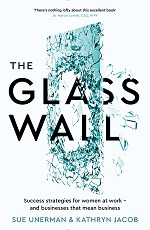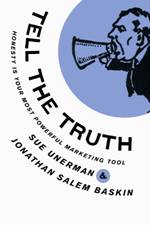
Misty Raney Bilodeau is one of the stars of Homestead Rescue, a very snackable Discovery Channel makeover show.
The twist for this version of the tried and trusted format is that the Raney family turn up at the homes of Americans who have moved off grid. They have left the modern world and are living in the wilderness, trying, and failing to make a success of man versus nature. The families fall victim to predators (bears, coyotes, wildcats); the weather (snow, tornadoes, desert conditions); and their own idiocy (building a home in front of a collapsing mountain, buying a property with no water, or with contaminated water, with no source of food or ending up having to travel 100s miles to earn money to sustain their supposed bucolic aspirations).
The Raney family, long term Alaskan Homesteaders, arrive to rescue them. Marty, the patriarch, with his casual disregard for health and safety and love of a JCB digger and a nifty turn of phrase. Matt, the son, eager to get the family trained in shooting at predators with rifles or bows. And Misty, the epitome of strong femininity and resourcefulness. She normally sorts out the food problems with an inventive approach to animal welfare and growing vegetables.
Without too much exaggeration, after you watch a couple of episodes, you will probably agree that Misty should be the next president. She’s open, warm, inspirational, practical, resourceful, inventive, and empathetic.
However desperate the situation is, Misty will come up with a solution. As she once said: “You can grow food anywhere, it is all about technique”.
She frequently repurposes apparent junk into greenhouses that can successfully grow food. In one episode she rebuilds a school bus into a fertile hothouse.
In another episode she adapts the fertisilation system for crops of acquaponics, using water from fish ponds to fertilise crops, to “duckquaponics”, to create a real breakthrough on a homestead with little water, lots of ducks and an arid garden.
Misty empowers the food growers and care givers in the families she helps (who are predominantly women) by giving them techniques for growth. To get Misty to help, you do however need to live on a Homestead. For those of us that haven’t embraced that lifestyle there is another way to get tips and techniques for growth at work.
As March 2024 marks another International Women’s Day that has seen little progress in terms of lessening the gender disparity globally, we all need to make efforts to be inclusive and equitable. Understanding and sharing techniques, and pragmatic strategies for success at work are a crucial part of this. The Glass Wall, success strategies for women at work and businesses that mean business is a best selling book that I wrote with Kathryn Jacob OBE, published in 2012. It contains many solutions that will help grow women’s careers, just as Misty has techniques to grow gardens.
The book is designed to answer a range of frequent and common issues, issues that many of us have sleepless nights over, from: Do you worry that you’re getting less than your fair share at work?; to do you worry about what people think of you?; do you take the steps you should to progress your career?; Are you sometimes overlooked? Do you ever take things personally?; to do you have any difficult relationships at work? And do you know how to back down?
For one woman we interviewed for the book, the solution to feeling overlooked, lay in changing the language she was using for making suggestions: It is easy to mistake a rejection of your suggestion as a rejection of the idea. Of course it is. Frequently you may find that the rejection is a rejection of the format of the idea, not of the content of that idea. The format of any suggestion is as important as the idea itself. In this instance “Sara” bounced back from an outright rejection by using a football analogy. It is so simple, but it was just luck that she arrived at it. Before you take an idea to your boss, your client, or your team, think about the very simplest way that you can explain it. Find out what they’re passionate about – it might be sport, it might be art, it might be education. Use the language of their passion to explain your thinking.
Misty maintains that she can grow food anywhere under any conditions, we think that you can grow your career under most conditions, but sometimes you have to try new techniques and strategies to change the circumstances around you at work to grow your career.







ITS NOT FAIR
Thursday, April 25th, 2024Do you ever feel like this?
I’ve blogged in the past about the fact that we are part ape and part bee. Not just you and me, but humans in general. It’s the theory of author and social scientist Jonathan Haidt who says that whilst deep down we are still pack animals, social creatures who need affirmation from our leader, we are also bee like. Bees work for a common cause, not just for individual recognition. They don’t compete with each other within the hive. The hive works together to make honey and ensure the survival of the next generation.
So the ape part of us needs recognition from our boss, the bee part of us loves collaborating to build great stuff.
The ape part of us is more nuanced than you might first think too. It isn’t just about a top ape conferring credit on the humbler parts of the team. Apes really care about fairness and about working together too.
Frans de Waal was a professor of primate behaviour at Emory University in Georgia, who died this March. Till his work in the mid-seventies the prevailing theory about chimps was that the most powerful chimp became the leader, and that their community was based around violence, aggression and selfishness.
But de Waal noticed two young chimps fighting until one won, and the other lost, and retreated to a high branch. Then de Waal saw something that astonished him and the scientific community at the time. One held out his hand to the other as if to seek reconciliation. In a minute they had swung down to the same part of the tree, embraced and kissed.
He rewrote the science beliefs of his era with this and hundreds of experiments and lots of data. According to his obituary in the Economist he passionately believed that it would be good for humanity if “he could convince people that their better instincts – altruism, co-operation, peacemaking – were as innate as violence and competition.”
What is striking about his work is that fairness is crucial to harmony. This video shows the striking experiment (which is admittedly upsetting because of the caged animals, so be warned) where two capuchins were put in adjacent cages and given the same task to do, to hand stones to the researcher. At first, they got the same reward – a slice of cucumber. Then one was rewarded with a grape instead. When the other monkey noticed this it went wild, hurling the slice of cucumber out of the cage and shaking the bars.
Transparent, and clear fairness in every workplace is crucial to harmony and productivity. If you feel your boss has favourites, for reasons that aren’t clear it can make you miserable. If you don’t know what to do to get into an inner circle that seems to exclude you then it will damage your ability to do great work.
Great leaders know this, and understand how to get the best out of their teams by ensuring that there is a clear light illuminating how things work around the place.
When you are leading a team, remember the grape, and ensure that you are being completely fair with your praise, rewards and inner circle.
Posted in MediaComment | Comments Off on ITS NOT FAIR